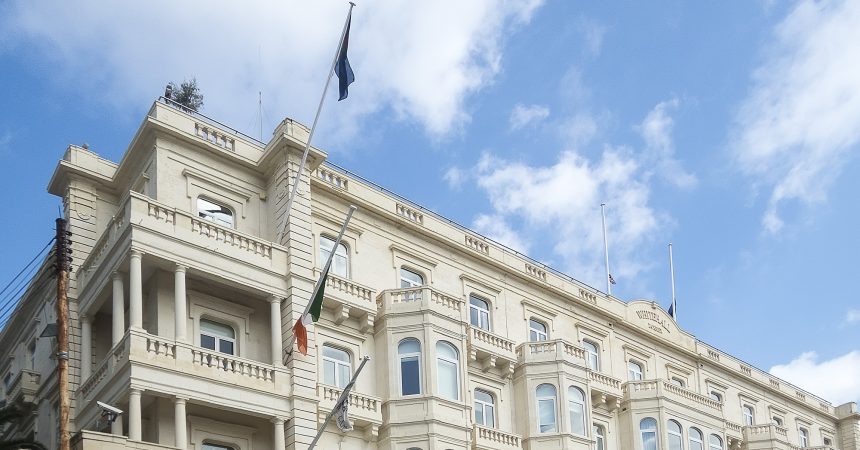Adds reactions by the sons of murdered journalist Daphne Caruana Galizia and Prime Minister Joseph Muscat
Pilatus Bank whistleblower Maria Efimova will not be extradited to Malta because there is no guarantee she would be granted a fair trial and granted protection, an Athens court ruled on Thursday.
The ruling was described as an “indictment of Malta’s collapsing rule of law and its government’s drive to persecute rather than protect whistleblowers,” by the sons of murdered journalist Daphne Caruana Galizia.
The Russian whistleblower at the centre of a corruption scandal involving Malta’s prime minister Joseph Muscat – was being held in jail in Athens awaiting the Greek court’s decision on her extradition. Following her arrest in Athens, MEPs urged Greek authorities not to send Efimova back to Malta.
MEPs and civil society called on the Greek authorities to provide Efimova with protection and to not return her to Malta.
Reacting to the news, Prime Minister Joseph Muscat said the Greek court’s decision does not reflect any type of mistrust in the courts, the police or rule of law in Malta.
Admitting that he had not yet read the judgment yet, Muscat insisted that the ruling “has nothing to do with the lie that was said about me.”
Earlier on Thursday, Maltese MEP David Casa, testified in front of the Greek court in the extradition case of Efimova. Talking to The Shift News after the sitting, Casa said “it is outrageous that not only have Konrad Mizzi and Kieth Schembri not been brought to justice but they continue to hold their posts. I believe it was clear to the judges that all is not well in Malta. The decision is a victory for whistleblowers. It is victory for justice.”
Efimova gave herself up to Greek police last month after fearing the worse for herself and her family. She absconded from Malta after saying that she feared for her life and that of her family, including her elderly father in Moscow who she said was being intimidated by “dodgy people.”
Efimova, who has not been granted whistleblower status by Malta, was issued an international arrest warrant after the whistleblower failed to attend court hearings into a criminal complaint filed against her by her former employer Pilatus Bank in Malta.
Last year, Efimova testified in front of a magisterial inquiry into allegations that the Maltese Prime Minister Joseph Muscat’s wife was the owner of a Panama offshore company called Egrant Inc, which declaration of trust the whistleblower says she had seen while working at Pilatus Bank.
Efimova’s claims about Pilatus Bank were first reported by the journalist Daphne Caruana Galizia, who was killed by a car bomb on 16 October 2017.
In the run-up to last year’s general election, Caruana Galizia published Efimova’s account, which included details about an alleged $1 million transfer to Egrant from Azerbaijan’s ruling family. The allegations have been denied by Pilatus Bank and Muscat but a magisterial inquiry is still ongoing.
Caruana Galizia’s sons, Matthew, Andrew, and Paul Caruana Galizia welcomed the Greek court’s decision which they said is an indictment of Malta’s collapsing rule of law and its government’s drive to persecute rather than protect whistleblowers.
“Maria Efimova is being targeted in a smear campaign led by the Maltese government. Stories have been spread in the media, falsely accusing her of being wanted in connection with our mother’s assassination. Ms Efimova’s decision to expose wrongdoing by her former employer in Malta, Pilatus Bank chairman Ali Sadr Hashemi Nejad, who is now facing 125 years in a US jail for evading sanctions against Iran, and his corrupt links to Maltese government officials, was a bold and brave step. It put her at risk of assassination,” they said.
Malta has made Efimova the country’s first political asylum seeker, Caruana Galizia’s three sons said, adding that “Malta has done nothing to protect its most prominent whistleblowers, Maria Efimova and Jonathan Ferris, both of whom revealed crime and corruption at the highest level of the Maltese government. Whistleblowers should be protected. They should not be persecuted.”
The Greek court assessed the various reports from Malta’s anti-money laundering agency, the FIAU and Casa also referred to the FIAU report in his possession, that details the involvement of Konrad Mizzi in criminal activity.
In a press statement, Casa said “Konrad Mizzi continues to hold his post, despite the revelations in the Panama Papers. The FIAU report calling for police action was buried by the authorities in Malta. This is clear evidence of the political capture of the institutions. It is testament to the extent of measures that will be taken to protect the criminals in power. The very same people that the information in Maria Efimova’s possession incriminates”.
He also referred to the recent arrest of Pilatus Bank chairman Ali Sadr Hashemi Nejad in the United States, and the relationship between the Iranian and the top officials of the Maltese government, including the Prime Minister Joseph Muscat and his chief of staff Keith Schembri.
“As a whistleblower, not only was Maria not protected but her identity was revealed by the government – this is a clear example of how her safety was endangered. The Maltese government then launched an aggressive, vicious campaign was launched to discredit and vilify her. The masterminds behind Daphne Caruana Galizia’s assassination are still at large. Maria was crucial to Daphne’s work and has been proved right time and time again. She will not be safe until Daphne’s killers are apprehended and brought to justice”, Casa said.
David Casa was asked to testify by Efimova’s legal team and after the court session, Casa said: “Maria has my support. Maria has the support of the European Parliament. We have a duty to protect whistleblowers. Maria has exposed wrongdoing at great personal risk. The sordid links of criminality between Pilatus Bank, Konrad Mizzi and Keith Schembri and their associates are clear. They are the ones that should be locked up”.













